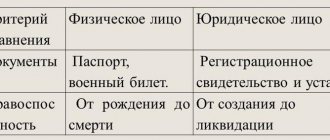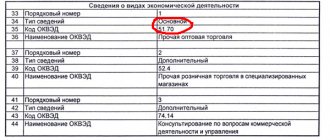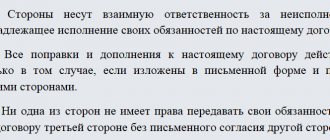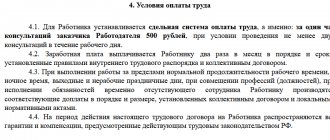Civil contract with a foreigner
A civil law contract is often concluded with foreign citizens to perform temporary, seasonal work.
This agreement is relevant if the work is temporary, for example, a certain service. If an employer intends to use the labor of a foreign citizen on a permanent basis, then he is obliged to conclude an employment contract with him, while complying with all the requirements of labor legislation.
The GPC agreement is convenient for the employer, but its conclusion should not be abused. A civil agreement can only be concluded if there is a suitable case for this. Disguising an employment relationship as a civil contract may result in punishment and fines for the employer.
If a civil contract has been concluded with a foreign citizen, then the employer is only obliged to accept work performed properly from the foreign citizen and pay for it in accordance with the terms of the contract. He is not obligated to comply with the Labor Code of the Russian Federation - payment for vacation, sick leave, social benefits and guarantees are not relevant for the GPC agreement.
In turn, a foreign citizen, when signing a civil contract, is not obliged to comply with the rules and operating hours established at the enterprise. An employee under a GPC agreement must be guided only by the conditions specified in the contract. He must perform the work properly or provide the service. He must also report to the employer in a certain way and receive payment from him. A sample civil law agreement with a foreigner can be downloaded below.
We also suggest reading about the execution of a GPC agreement in this article. Its variety is a contract (performance of work) or provision of a service.
How to properly draw up a GPC agreement
When drawing up an agreement with a foreign citizen for the provision of services or performance of work, follow the general rules provided for in Chapter. 37 and 39 of the Civil Code of the Russian Federation, the rules for Russians and foreigners are the same, with the exception of a few nuances.
According to the DPKH, the foreign contractor undertakes to perform certain work and (or) services according to the customer’s instructions and upon completion deliver the results to the customer. The customer undertakes to accept the result of the work and pay for it (Clause 1, Article 702 of the Civil Code of the Russian Federation).
Essential conditions
The key procedure for drawing up an agreement with a foreign citizen involves the inclusion of essential conditions of civil law relations in the State Property Agreement. These include:
- The subject of the contract is the performance of specific work with the achievement of a certain result upon completion of the work. Here the scope of work or list of services, their result or the result of implementation, which is declared for acceptance, is written down.
- The initial deadline for the order is the specific date when the foreign citizen must begin completing the customer’s assignment. For DHPC for services, it is possible to omit the conditions on the timing of the implementation. But the employer is interested in specifying the performance period.
- Deadline for order fulfillment. This is a calendar date or a reference to a specific event, after which all work must be completed.
The contractor (foreign citizen) has the right to complete the task in advance, without waiting for the end date.
The price and conditions regarding the cost of the order are not material. It is allowed not to indicate this information at all, for example, if prices are determined in a special manner. We recommend indicating the specific cost of the order or describing the pricing method in detail to avoid disputes with the contractor.
Recommended contents of the contract
We recommend including the following in the content of the GPA with a foreign citizen regarding the performance of work or provision of services:
- name and details of the parties to the transaction - the customer and the contractor (foreign citizen);
- subject of the transaction: scope of work or provision of services, terms and conditions of the order, etc.;
- the amount of remuneration or the procedure for its calculation;
- rights, duties and responsibilities of the customer and the performer (contractor);
- dispute resolution regulations;
- grounds for termination of cooperation, etc.
Additionally, include information about a patent or permission to work if a contract is being drawn up with a foreign citizen with a patent. Please note the procedure for applying a patent in 2020: the permit is valid only in the constituent entity of the Russian Federation in which it was issued (with the exception of business trips and official trips). For example, if a patent was issued in Moscow, a foreigner does not have the right to work in the Moscow region and other regions.
Notification to the Ministry of Internal Affairs
Within 3 working days from the date of employment of a foreigner, the employer is obliged to notify the Ministry of Internal Affairs (Clause 8, Article 13 of Law No. 115-FZ). Otherwise, the customer will face hefty fines under Parts 3 and 4 of Art. 18.15 Code of Administrative Offenses of the Russian Federation. Moreover, the form of employment does not matter. Notifications will have to be submitted if:
- contracted with a foreign citizen;
- a contract for the provision of paid services has been signed with a foreign citizen;
- an employment contract has been concluded with a foreign citizen.
The form and procedure for drawing up the notification are fixed by Order of the Ministry of Internal Affairs of Russia dated June 4, 2019 No. 363. Details on filling out the form are in the article “Notification of concluding an agreement with a foreigner: who submits, when and how.”
The condition is mandatory for employers - legal entities and individual entrepreneurs. If the customer is an individual, then he is not obliged to notify the Ministry of Internal Affairs about the employment of visitors. But keep in mind that if an agreement between an individual and a foreign citizen has been drawn up, you will have to submit a notification to the MFD about the registration of the foreigner with migration registration.
Sample design
Using the labor of foreign workers, certain rules must be followed. First of all, you need to notify the migration service that a foreign citizen has been hired under a civil contract. If you terminate the contract with him, you should also inform the FMS.
A foreign citizen must have a work permit or a temporary or permanent residence permit in Russia. If there is no place of residence, but there is a place of stay, then you need to require a work permit, visa or migration card from the foreigner.
The contract must clearly stipulate the type of work or services that the foreign worker must perform or provide. As a rule, details are set out in additional documentation in the form of a specification, which is attached to the agreement.
Next, you need to indicate in what time frame this work must be completed and in what form. When handing over the work, as a rule, a certificate of acceptance of work performed or a certificate of services rendered is drawn up. These documents are signed by both parties upon delivery of the work and are attached to the main agreement concluded between the employer (customer) and the contractor (foreign citizen).
The next clause of a civil law agreement should be the payment procedure - amount, terms, method.
If necessary, a specific operating mode of the performer can be prescribed. An example of an agreement concluded with a foreigner can be downloaded below.
Sample civil contract with a foreign citizen - download.
Restrictions on the work of foreigners.
We have already written about them in detail in the article “Hiring foreign citizens,” so here we will only recall the basic requirements.
- First, a foreigner's employment may require a permit to use foreign labor. This permission must be obtained if an agreement, including a civil agreement, is concluded with a foreigner who is in the country on a visa.
- Secondly, the foreigner who entered on a visa must also have a work permit. If he doesn't exist, you can't hire him. There is a serious fine for violation.
- Thirdly, if a foreigner is in the Russian Federation in a visa-free regime, then to work, including under a civil contract, he will need a patent. Please note that you can work under a patent and permit in the Russian region in which they were received and perform only the work that is specified there (if specified).
- Fourthly, if a foreigner temporarily resides in the country, then he can perform work only in the territory of the Russian region where he is registered.
- Fifthly, the FMS territorial agency must be notified about concluding an agreement with foreigners.
These are not all the requirements associated with hiring foreign citizens. Failure to comply with the above requirements will result in significant administrative sanctions. For more information about this, see the article at the link above.
GPC agreement with a foreign citizen (sample of completion) in 2019
A civil contract is a written agreement on the provision of services or performance of work; in this case, this agreement is signed with a citizen of another country.
When engaging a foreign citizen to perform work or provide services, the question arises of which contract to draw up: civil or labor. If you plan to engage an employee from another country for specific one-time services, then the best option would be a civil law agreement with a foreigner (GPC).
Important. The document is more advantageous in comparison with an employment agreement, since it is not the fact of hiring an employee, which requires filing reports and paying taxes, but is only an agreement on the provision of services, which now needs to be reported only to the Federal Migration Service.
Employment contract with a foreign citizen for a certain period
Employment contract with a foreign citizen for a certain period No.
g.
"" g.
in a person acting on the basis of, hereinafter referred to as "
Employer
", on the one hand, and a citizen, passport (series, number, issued), residing at the address, hereinafter referred to as "
Employee
", on the other hand, hereinafter referred to as "
Parties"
", have entered into this agreement, hereinafter referred to as the "Agreement", as follows:
SUBJECT AND VALIDITY OF THE EMPLOYMENT CONTRACT
1.1. In accordance with the written application of the Employee, the Employer hires him as a...
1.2. The employee undertakes to perform all work required by the position to which he is assigned, as well as job responsibilities and specific tasks (assignments) established orally or in writing by the construction administration.
1.3. The validity period of this Employment Agreement is set from "" year to "" year inclusive. The specified validity period of this Employment Agreement is established by the validity period of the Construction Contract concluded by the company with.
CONDITIONS OF MATERIAL REMUNERATION FOR AN EMPLOYEE
2.1. The Employer sets the Employee a monthly official salary in an amount (in rubles) equivalent to US dollars at the exchange rate of the Central Bank of Russia on the day of payroll. The established monthly official salary may be increased or decreased depending on the results of the Employee’s work and the financial capabilities of the employer.
2.2. For the high-quality performance by the Employee of his job duties, as well as for the performance of particularly important and urgent work, the Employer may set an allowance for the Employee.
2.3. For performing, along with his main job, the duties of a temporarily absent employee, as well as for increasing the volume of work performed, the Employer may establish an additional payment for the Employee.
2.4. Depending on the financial results of the Employer’s activities, the Employee may be awarded a bonus and also receive financial assistance.
2.5. The employee is entitled to annual paid leave of calendar days.
DUTIES OF THE PARTIES
3.1. The employer undertakes:
a) comply with current Russian labor legislation (including in terms of compliance with labor safety rules);
b) fulfill the terms of the Employee’s material remuneration;
c) carry out social, medical and other types of compulsory insurance for the Employee;
d) ensure the legally guaranteed minimum wage and safe working conditions;
e) create living conditions that meet the requirements of sanitary standards;
f) create the necessary conditions for improving the qualifications of the employee;
g) bear other obligations stipulated by current Russian legislation.
3.2. The employee undertakes:
a) strictly fulfill contractual obligations;
b) strictly comply with internal labor regulations, as well as safety regulations, labor protection and fire safety;
c) constantly improve your skills;
d) not disclose information constituting official and commercial secrets of the Employer;
e) bear other responsibilities stipulated by current legislation and this Employment Agreement.
RIGHTS OF THE PARTIES
4.1. The employee has the right:
a) make proposals aimed at increasing the efficiency of the company;
b) enjoy other rights provided for by current labor legislation.
4.2. The employer has the right:
a) establish internal labor regulations for the Employee;
b) demand from the Employee strict adherence to labor discipline;
c) apply disciplinary measures to the Employee in accordance with current legislation;
d) establish the composition and list of information about the activities of the Employer that constitute official and commercial secrets, as well as measures for their protection and liability (including financial) for their disclosure;
e) enjoy other rights stipulated by current labor legislation.
RESPONSIBILITY OF THE PARTIES
5.1. In the event of non-fulfillment or improper fulfillment by the Employee of the obligations arising from this Agreement, he is obliged to compensate the Employer for losses caused by such non-fulfillment or improper non-fulfillment in accordance with current legislation.
5.2. In case of violation of its obligations, the Employer shall compensate the Employee for damages in the manner prescribed by current legislation.
DISPUTE RESOLUTION, AMENDMENT AND TERMINATION OF THE EMPLOYMENT CONTRACT
6.1. All disputes and disagreements that may arise from this Employment Agreement or in connection with it will, if possible, be resolved through negotiations between the parties.
6.2. An employment contract can be changed or terminated by mutual agreement of the parties. This Employment Agreement may be terminated by one of the parties on the grounds provided for by current legislation.
OTHER CONDITIONS
7.1. This Employment Agreement is drawn up in two copies (one for each party) and comes into force from the moment the administration issues an order appointing the Employee to the position specified in clause 1.
LEGAL ADDRESSES AND PAYMENT DETAILS OF THE PARTIES
Employer
- Legal address:
- Mailing address:
- Phone fax:
- INN/KPP:
- Checking account:
- Bank:
- Correspondent account:
- BIC:
- Signature:
Worker
- Registration address:
- Mailing address:
- Phone fax:
- Passport series, number:
- Issued by:
- When issued:
- Signature:
How to correctly draw up a civil contract with a foreigner
A civil contract, as well as an employment contract, must reflect the following points:
| Employer information | The full name of the organization that enters into the contract is indicated, indicating the last name, first name and patronymic of the head of the organization, as well as registration data |
| Employee information | Last name, first name and patronymic of the foreign citizen, identification document details |
| Subject of the agreement | This paragraph specifies the work that the employee must perform and for how long. |
| Working condition | The main workplace and daily routine are prescribed |
| Salary | The amount of remuneration for the work performed, as well as the calculation procedure, is indicated. |
| Contract term | The start date of the contract and the end date of the contract must be indicated. |
| Details of the parties | This paragraph specifies the legal address of the employer and the employee’s passport details, as well as his place of registration. |
The agreement is drawn up in two copies and signed by both parties.
When concluding a GPC agreement with a foreign citizen, you need to take into account the fact that he will not bear either financial or disciplinary liability, and will not be subject to internal regulations. In this case, the foreign citizen does not have the right to disability payments and reimbursement of travel expenses.
Sample contract
A sample civil contract with a foreign citizen can be downloaded from the link below. It contains all the necessary conditions that must be reflected in this type of transaction. It is enough to change the information (bring the contract in accordance with the necessary conditions, change the data of the customer and contractor), and you can use the document in practice.
Thus, when concluding an agreement with a foreigner, it is necessary to notify the authorized state body of the Russian Federation. In addition, compliance with the requirements of the Civil Code of the Russian Federation is required in relation to a specific type of contract.








